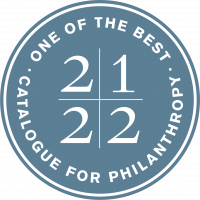

Building Social-Emotional and Communication Skills
Building social-emotional and communication skills starts at an early age! The United Nations International Children’s Emergency Fund (UNICEF) recommends these strategies:
- Practice active listening: Listening actively helps children feel heard and understood. Use gestures, such as encouraging smiles and affirming nods to show you care. Get down to the same eye level to help a child feel safer. Ask questions like “what?” “why?” and “how?” to show you are interested.
- Lead by example: Consider what example you are setting. Parents, caregivers, and other adults in a child’s life influence their behavior. What a child sees and hears the adults in their life do is important.
- Speak clearly: Use language that is appropriate for a child’s age. Using kind language also helps set a positive example for children.
- Avoid bribes: Offering bribes may create a confusing message or distrust. Try to set clear and realistic expectations instead.
- Have fun together: Find ways to relate to a child by talking about their interests, playing their favorite games, and going on adventures together.
- Practice reflective listening: Act like a mirror! Repeat back what they say to you using different words.
- Explain feelings: It is important for children to learn how to name their feelings. When a child is expressing their feelings verbally, listen to what they have to say with empathy and without judgment. If they are expressing feelings in a nonverbal way like crying or laughing, help them put words to how they feel, such as sad, happy, scared, or angry.
-
Use noticing statements: Praise a child for specific actions. Instead of saying “good job!” say “I noticed that you put all of your toys away after playtime, nice work!”

Refer a Child
Anyone may refer a child between the ages of 2 years 8 months and 5 years 10 months to Early Stages for a screening. Click here to refer to Early Stages. For younger children, click here to refer to Strong Start. For older children, contact the child’s school. If you have any questions about where to refer a child, call or email Early Stages, and we will point you in the right direction.
Learn with Early Stages
Early Stages offers free workshops on many early childhood topics. Individual parents and professionals may attend one of our public workshops. Professionals may also sign up as single attendees through DC Child Care Connections. Organizations may book group workshops for professionals or parents by emailing education@


Leave a Reply